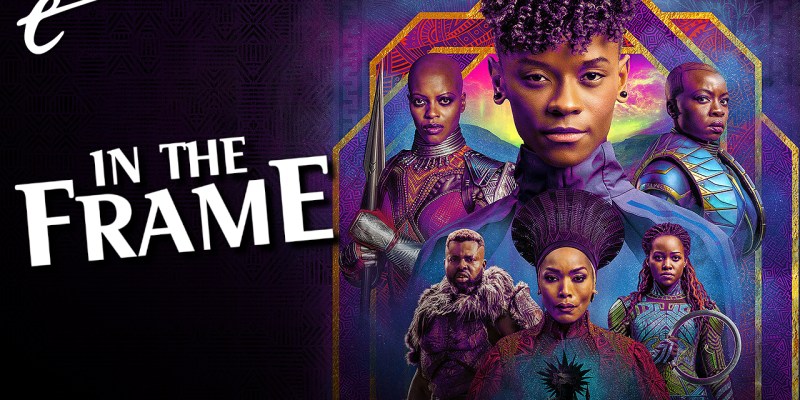This article contains heavy spoilers for Black Panther: Wakanda Forever in its discussion of powerlessness in the narrative. If you haven’t seen the movie yet but plan to, bookmark this page and come back soon!
The opening scene of Black Panther: Wakanda Forever is striking. Princess Shuri (Letitia Wright) rushes around her laboratory, panicking. Between praying to the god Bast for guidance and engineering new chemical solutions on the fly, Shuri asks her artificial intelligence to check on the health of her brother, King T’Challa (Chadwick Boseman). T’Challa has been infected by a deadly illness, and he is dying in real time. Most horrifyingly, there is nothing that Shuri can do to save him.
Director Ryan Coogler films this scene in long takes with a handheld camera. He pushes in on Wright, creating a sense of claustrophobia and mounting dread even before Shuri orders her assistants to clear the room. It’s frantic and out of control. Marvel Studios movies don’t normally look like this. They certainly don’t start like this. The scene ends when Shuri’s mother, Queen Ramonda (Angela Bassett), arrives to announce what Shuri already knows: The king is dead.
This is not how superhero stories are supposed to work. Superhero stories are supposed to be power fantasies. They are about individuals who can do whatever they want. Indeed, T’Challa was introduced in Captain America: Civil War, a movie driven by Steve Rogers’ (Chris Evans) refusal to be bound by human laws. When these superheroes did lose dramatically at the end of Avengers: Infinity War, the sequel was about them breaking the laws of time and space to claim victory.
A large part of the appeal of even the original Black Panther was its position as something of an empowerment fantasy. Wakanda was a country that had never been ravaged by colonialism, that had never been subjected to European or American imperialism. Black Panther imagined an untouched corner of Africa, one that had been free to prosper and flourish on its own terms. It allowed a largely neglected audience to see a fantasy of their idealized world on screen.
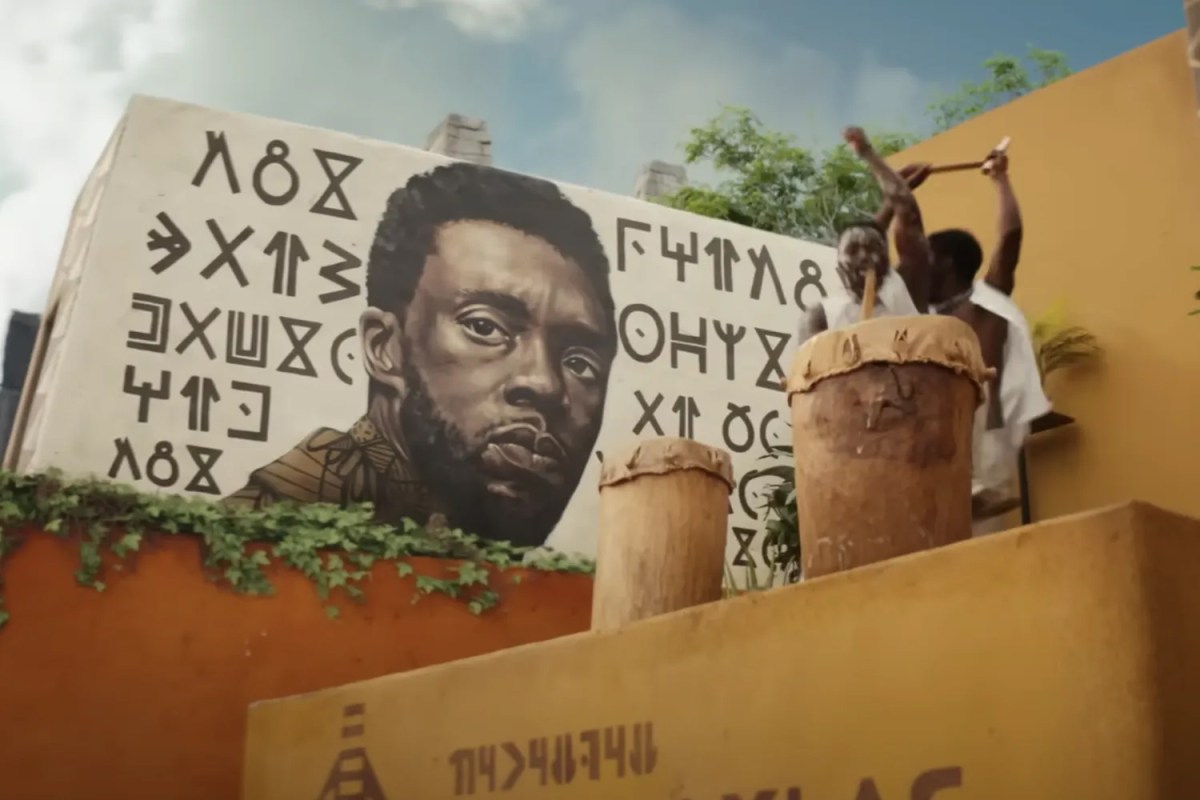
Black Panther created a world of exceptionalism. Wakanda has the most advanced technology on the planet. It sits upon a mound of the rare element known as vibranium and so controls the world’s supply of the useful mineral. Vibranium infuses the heart-shaped herb, which grants superhuman strength to the country’s rulers. Shuri is a genius. T’Challa is not just a superb warrior, but he is also “a good man, with a good heart.” Those are rare attributes in a king.
This excellence extends even beyond the royal family. Okoye (Danai Gurira), the head of the country’s all-female special forces, is so dedicated to the ideals of Wakanda that she would turn her blade on her own husband, W’Kabi (Daniel Kaluuya). Even the seemingly antagonistic M’Baku (Winston Duke), the head of the country’s reclusive mountain tribe, is a fierce warrior who ultimately proves himself to be of strong moral character.
Part of what is interesting, and what is challenging, about Wakanda Forever is that it is built around the understanding that there comes a point where excellence and exceptionalism are not enough. Wakanda Forever argues that its heroes are not as special and unique as they once believed themselves to be. After all, the entire plot hinges on the discovery of a second stockpile of vibranium in another hidden kingdom, demonstrating that Wakanda is not as singular as it believed itself to be.
Throughout Wakanda Forever, characters draw on every ounce of strength that they have, only to discover that it is not enough. Shuri works around the clock to heal her brother’s sickness but cannot do it. Okoye swears to protect the royal family from the threat posed by Prince Namor (Tenoch Huerta), only for Shuri to be abducted under her watch. When Queen Ramonda strips Okoye of her rank and title for her failure, Okoye protests, “Have I not given everything?”
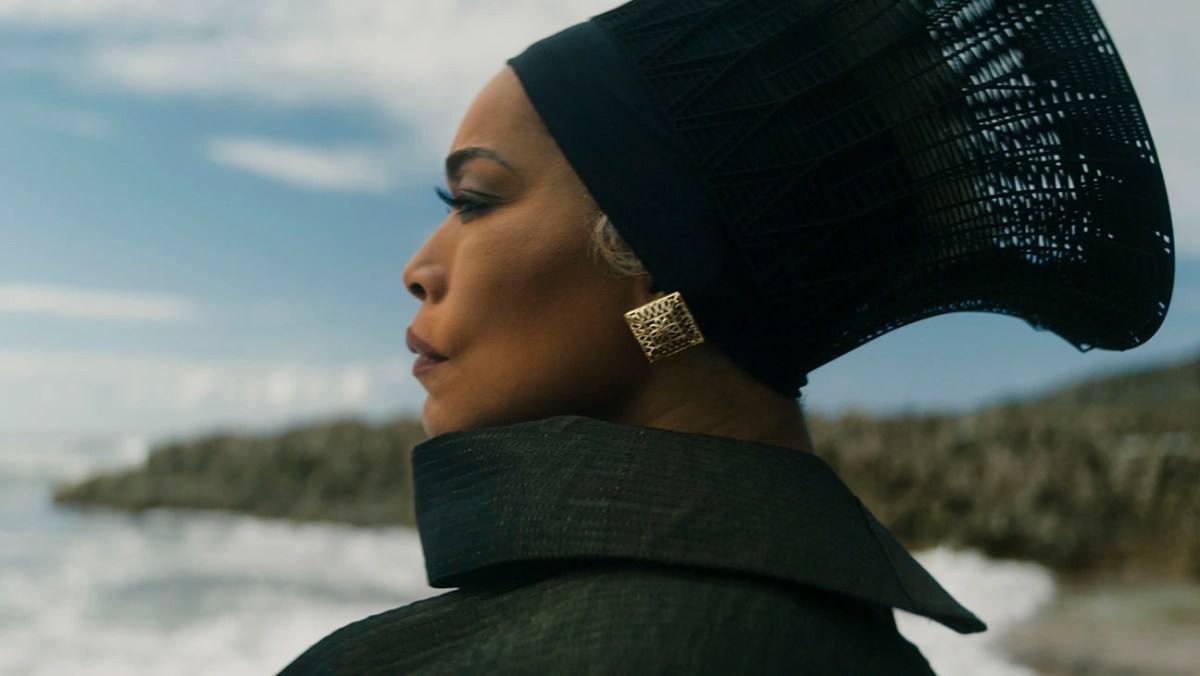
It’s a sincere and urgent question. However, Ramonda parrots it back at her subject, musing on the irony of how impotent the Wakandan throne has become. “I am queen of the most powerful nation in the world, and my entire family is gone!” Ramonda bellows. It is no small irony that Ramonda’s mission to rescue her daughter from Namor prompts a counterattack upon Wakanda that leaves Ramonda dead. By the end of the second act, Shuri has not only lost her brother, but her mother as well. Her entire family is gone, too.
It’s relatively unusual to see a superhero story acknowledge this sort of loss, to concede that there are limitations to the power fantasy that underpin the genre. There are obvious exceptions, but they are rare. In February 1982, Marvel Comics published The Death of Captain Marvel as a prestige graphic novel rather than a standard comic book, a story written and illustrated by Jim Starlin in which the cosmic superhero Mar-Vell succumbed to cancer. Notably, against comic book logic, Mar-Vell has stayed dead.
That said, Wakanda’s status as a country that has never been conquered has meant that there have been quite a few stories in recent decades depicting various invasions of the kingdom: Reginald Hudlin and John Romita Jr.’s “Who Is the Black Panther?,” Jason Aaron and Jefte Palo’s “See Wakanda and Die,” the crossover event Avengers vs. X-Men, Jonathan Hickman’s Infinity and later “Time Runs Out.” Wakanda Forever feels particularly indebted to Avengers vs. X-Men.
In some ways, these meditations on the limitations of superhero power in Wakanda Forever fit with the larger thematic concerns of Marvel’s “Phase 4.” Both Doctor Strange in the Multiverse of Madness and Thor: Love and Thunder are built around more intimate losses, as both Stephen Strange (Benedict Cumberbatch) and Thor Odinson (Chris Hemsworth) accept they will never be with the loves of their lives, Christine Palmer (Rachel McAdams) and Jane Foster (Natalie Portman).
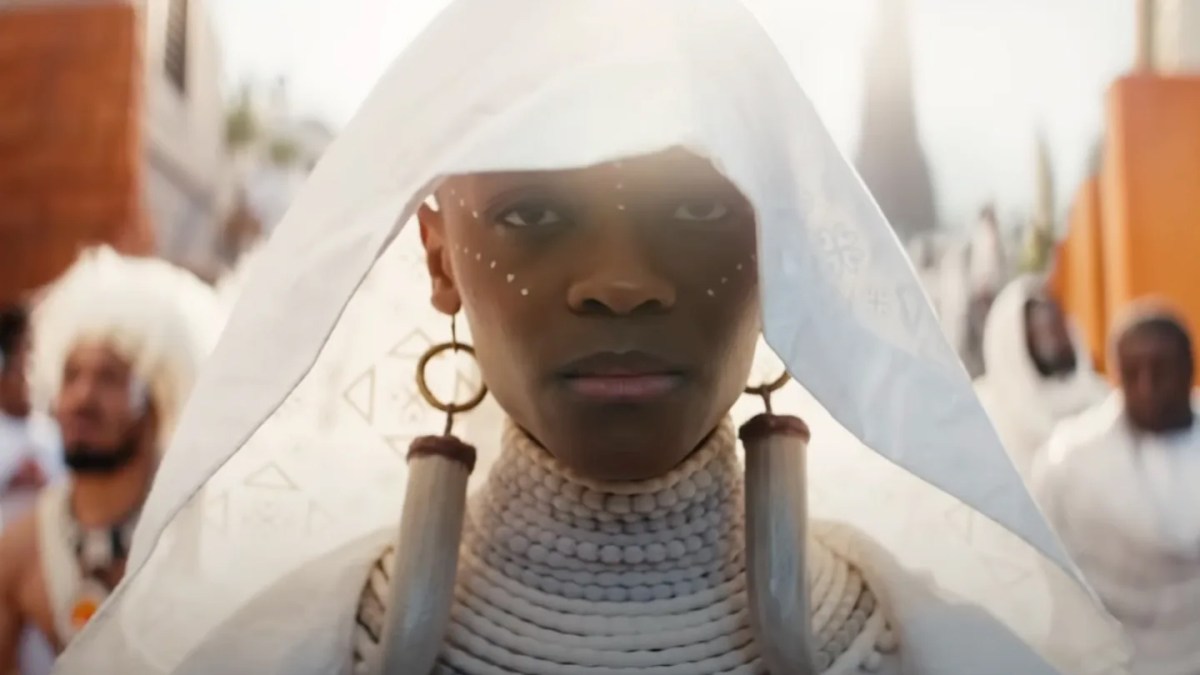
If Endgame was a superhero movie about how these figures will bend the laws of reality to ensure a favorable outcome, with Tony Stark (Robert Downey Jr.) managing to both preserve his daughter (Lexi Rabe) and undo “the Snap,” there is something more contemplative and perhaps even grounded in the three most recent films. To one degree or another, Multiverse of Madness, Love and Thunder, and especially Wakanda Forever are all stories about how superheroes can’t always fix everything.
This feels appropriate. Obviously, T’Challa’s absence from Wakanda Forever was a direct result of the tragic passing of actor Chadwick Boseman, requiring a radical reworking of Coogler’s original plans for the film. However, the character’s tragic passing — and the disruption that it causes to both the people and the story around him — perhaps speaks to a much broader sense of powerlessness and anxiety. To put it simply, Wakanda Forever resonates even beyond Boseman’s death.
The years since Wakanda Forever and Endgame have been tough. The coronavirus shut down society for an extended period. It has killed more than six million people worldwide. The tragedy isn’t just the death itself, but those left behind. In the United States alone, it is estimated that every death from the disease leaves nine close relatives bereaved and that 149,000 children have lost a parent to the disease. Those are horrifying statistics, and there has been no reckoning with them.
Wakanda Forever is not literally about the pandemic, any more than something like the third season of The Umbrella Academy was. However, it still informs the production. Wakanda Forever is deliberately vague about “that illness” that claimed T’Challa. Ramonda’s guards wear cloth masks over their faces. The film has that haunted, hard-to-define emptiness of a COVID production — lots of studio greenscreen work, the sense that the cast were largely shot separately, a minimum of crowds.
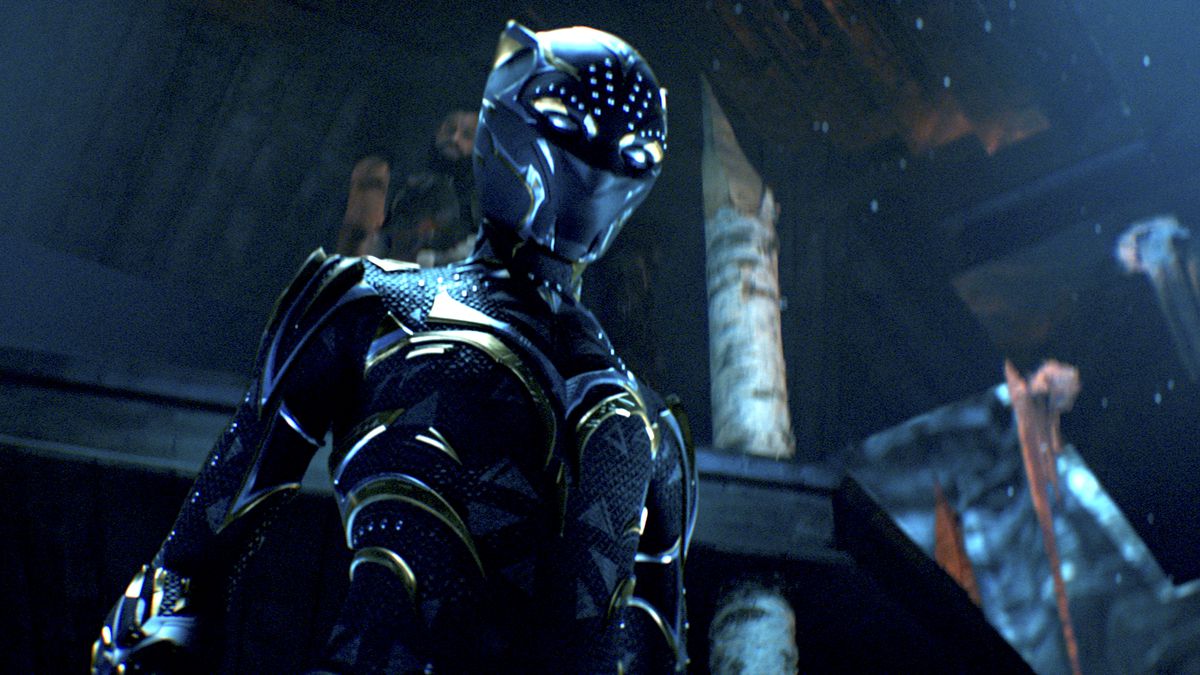
More to the point, the central tragedy of that opening scene will be familiar to anybody who lost somebody to the viral outbreak. Shuri doesn’t get to see her brother before he passes. She misses his final moments, something that makes it infinitely harder for her to move on. Of course, Shuri isn’t by his bedside because she’s trying in vain to find a cure, but the scene still evokes that experience of losing somebody on the lonely COVID wards, a death unmarked and unseen.
There are other unspoken shadows that loom over Wakanda Forever. At its core, Black Panther was a triumphant narrative for a marginalized community, for African Americans not used to seeing themselves foregrounded in these narratives. Recent years have not been easy, with widespread protests over the killing of African Americans by law enforcement, the disproportionate toll that COVID took on the community, and deliberate efforts to disenfranchise such communities politically.
Again, Wakanda Forever does not invoke any of this directly. However, the murals dedicated to the memory of T’Challa evoke those dedicated to deceased victims of police brutality like George Floyd, Breonna Taylor, or Tony McDade. As the plot progresses, these repeated losses solidify into anger inside Ramonda and Shuri. When Shuri takes the heart-shaped herb and communes with the ancestors, she summons violent revolutionary Killmonger (Michael B. Jordan) to feed her rage.
The way in which Wakanda Forever embraces helplessness and powerlessness feels genuinely radical within the confines of the superhero genre. It’s the most compelling aspect of the film, one with a great deal of resonance to audiences who have experienced similar sensations over the past couple of years. Wakanda Forever is a superhero story where excellence and exceptionalism are still not enough to save everything. There is something profound in that.
